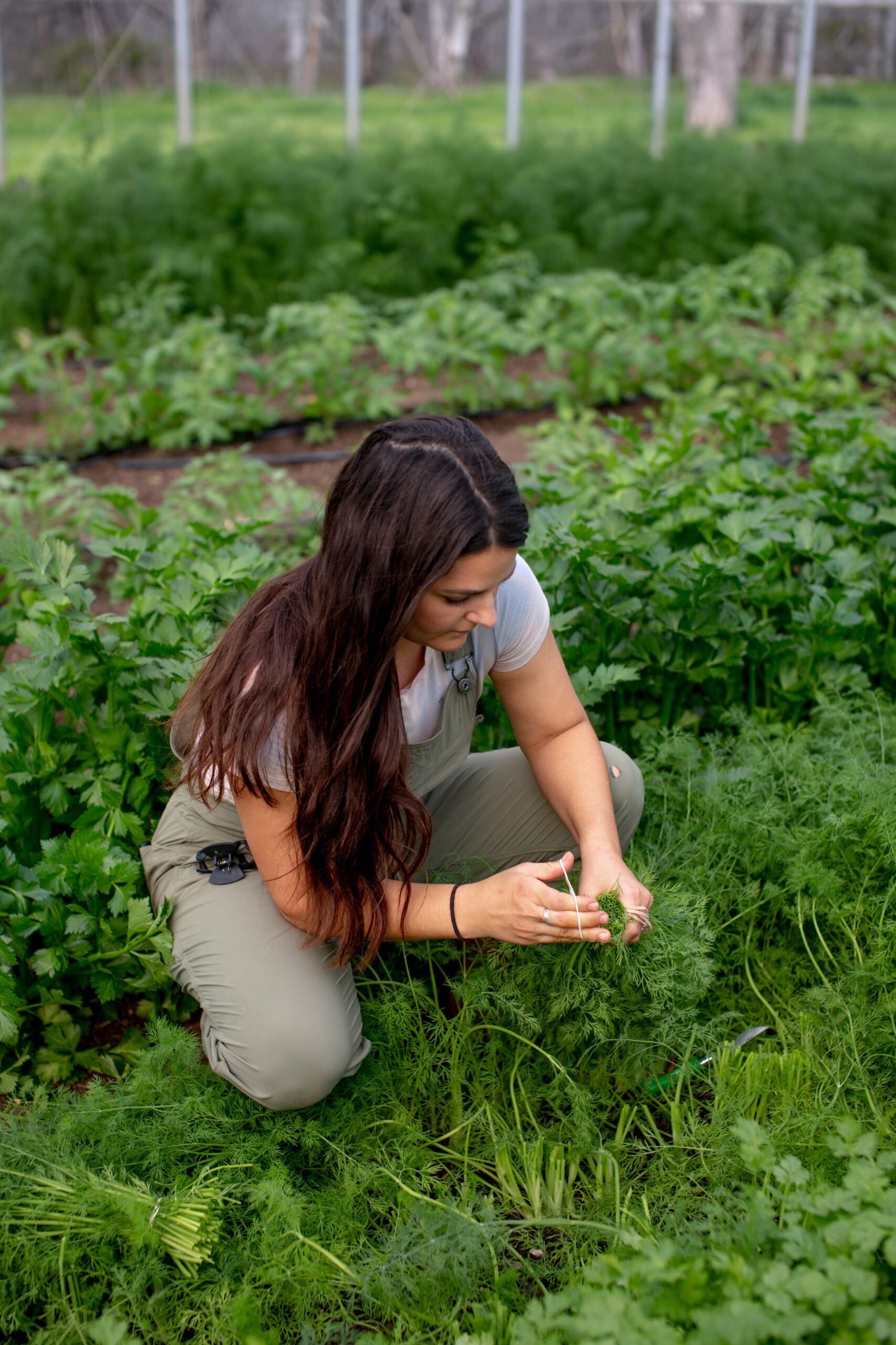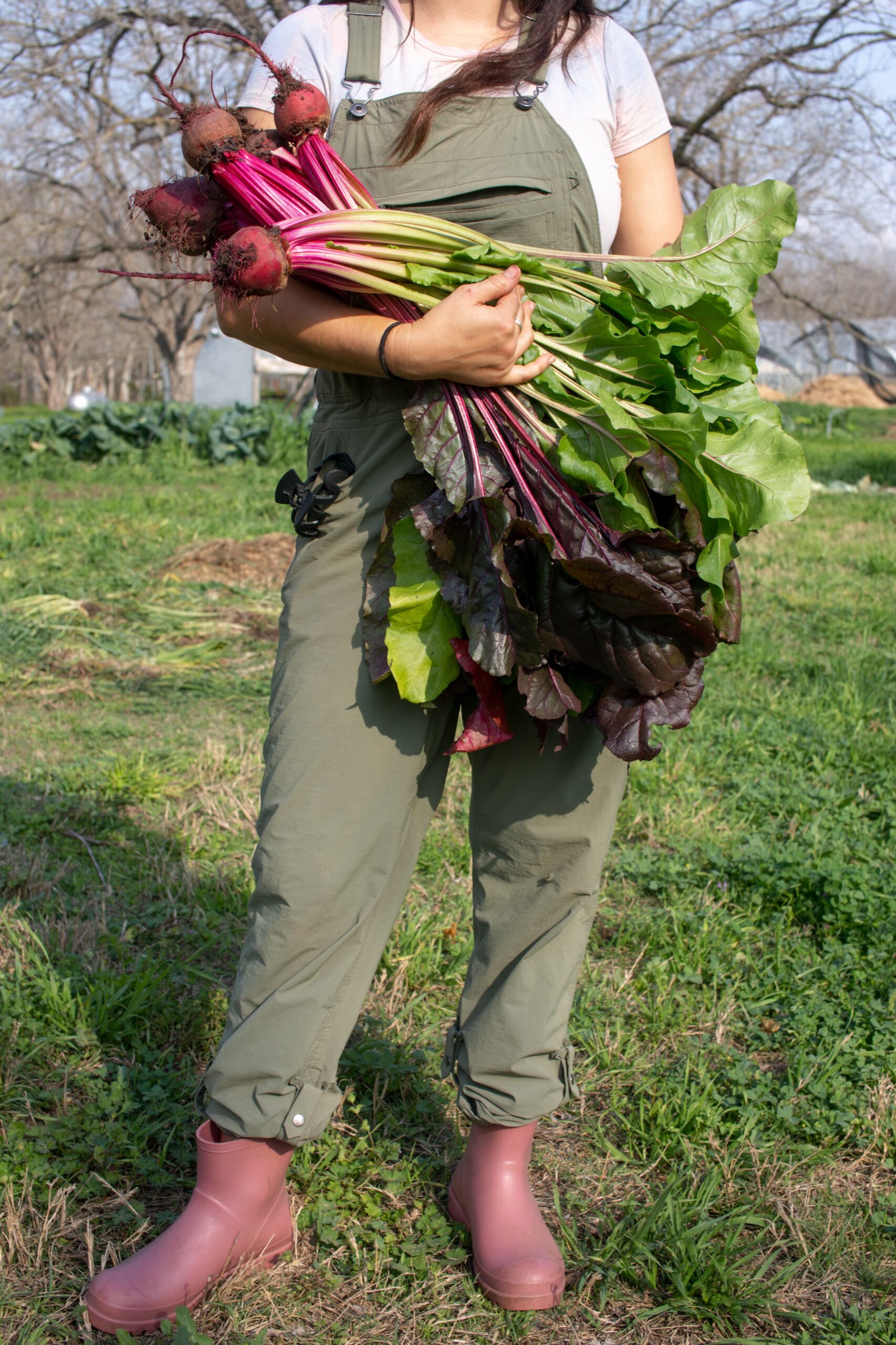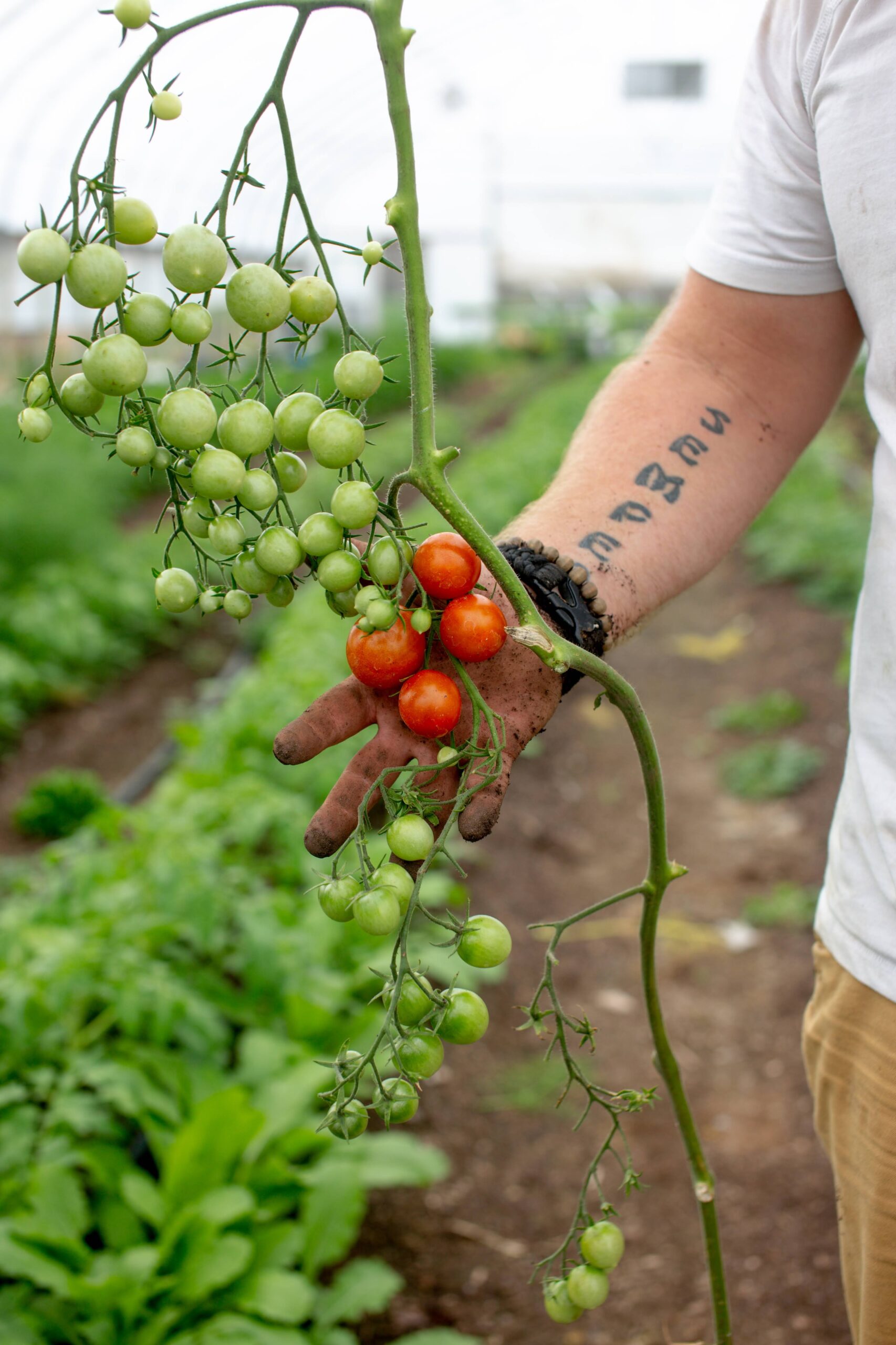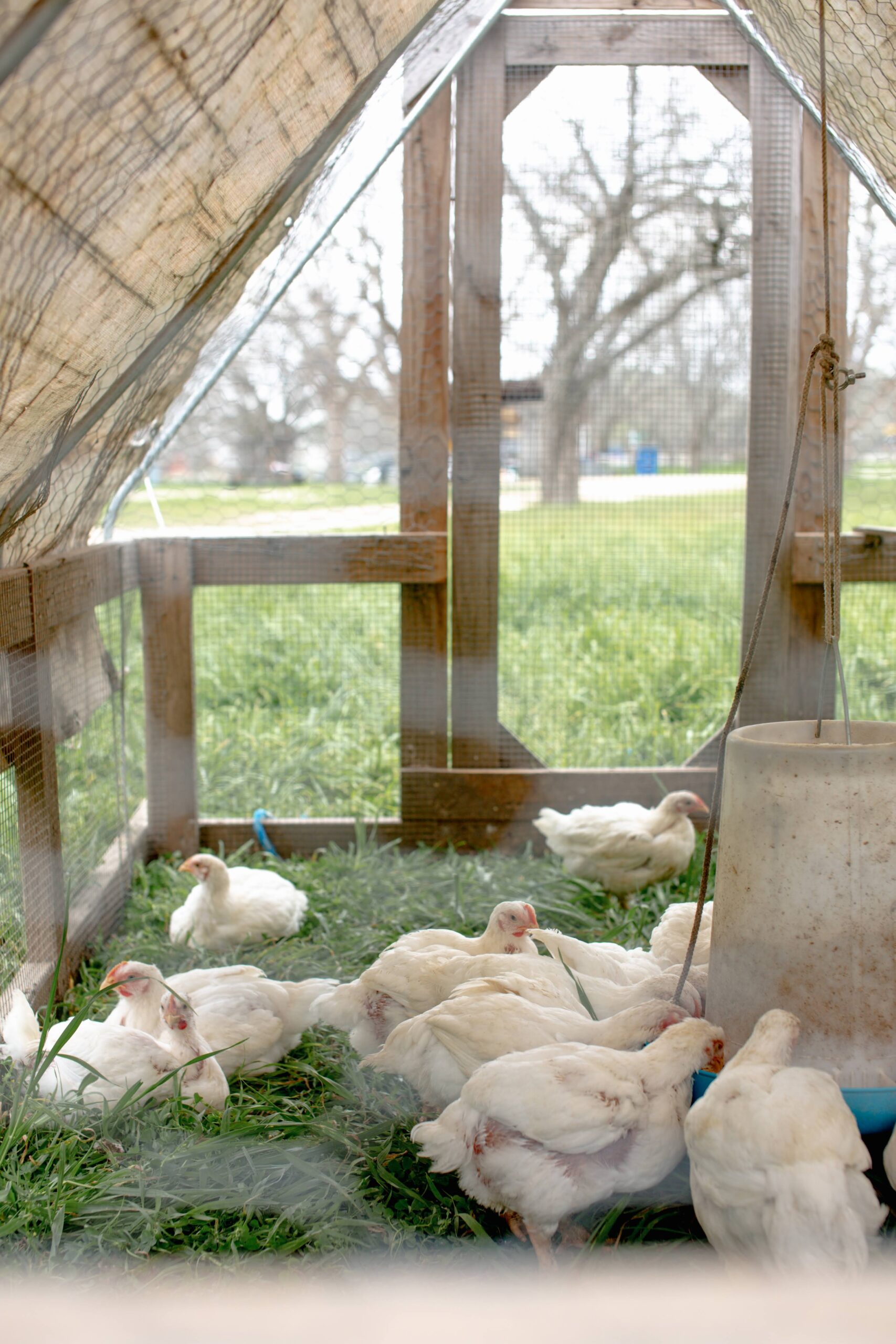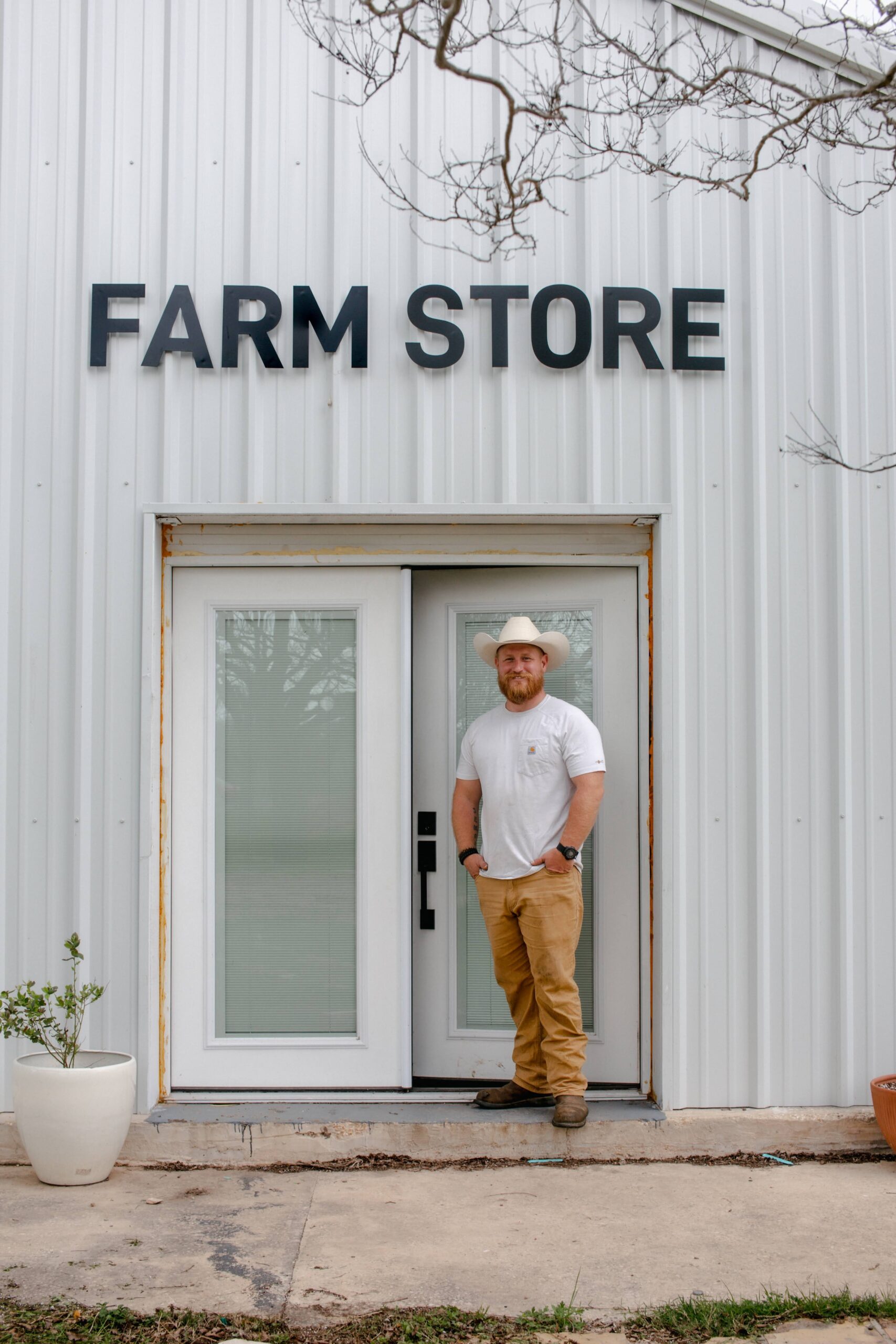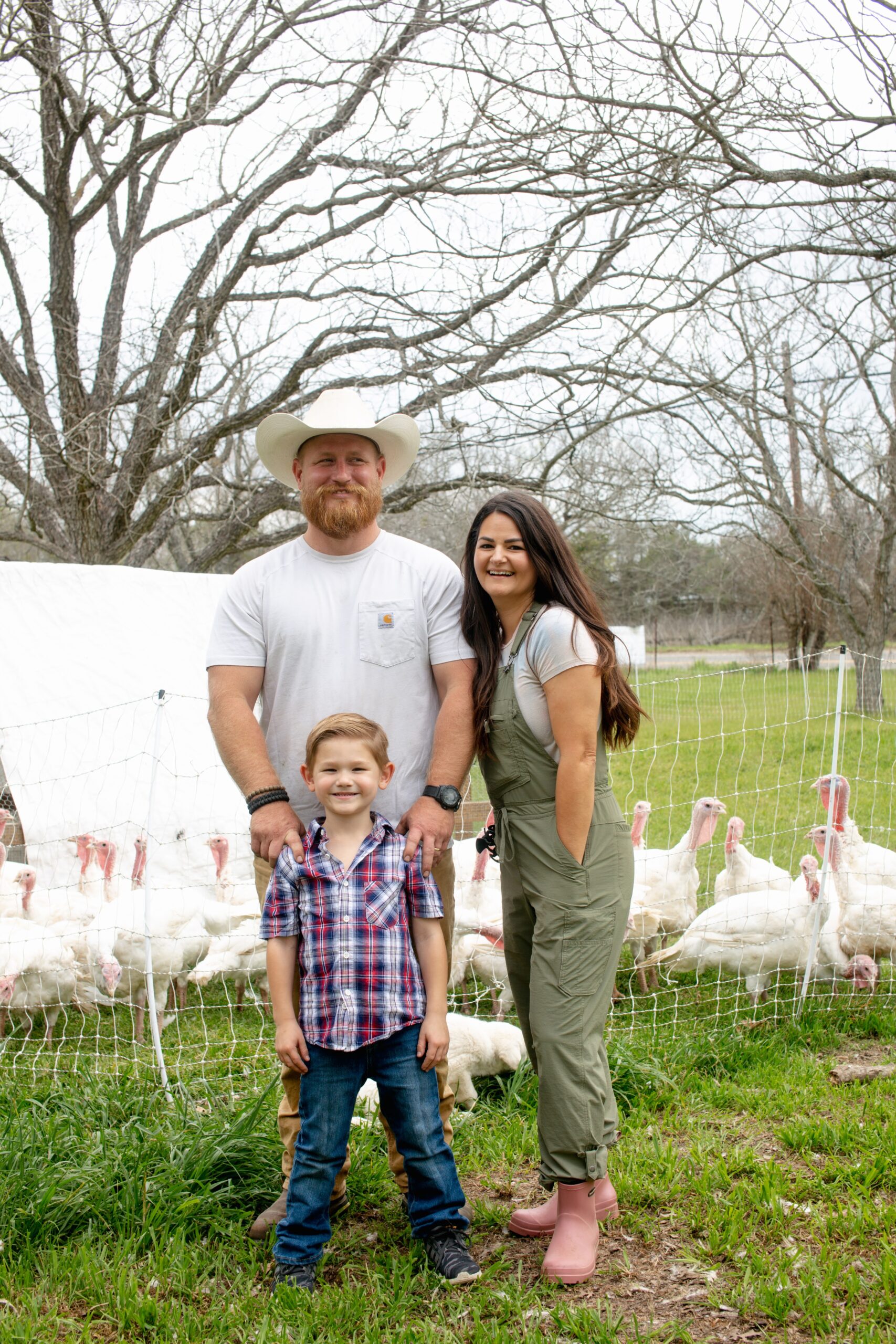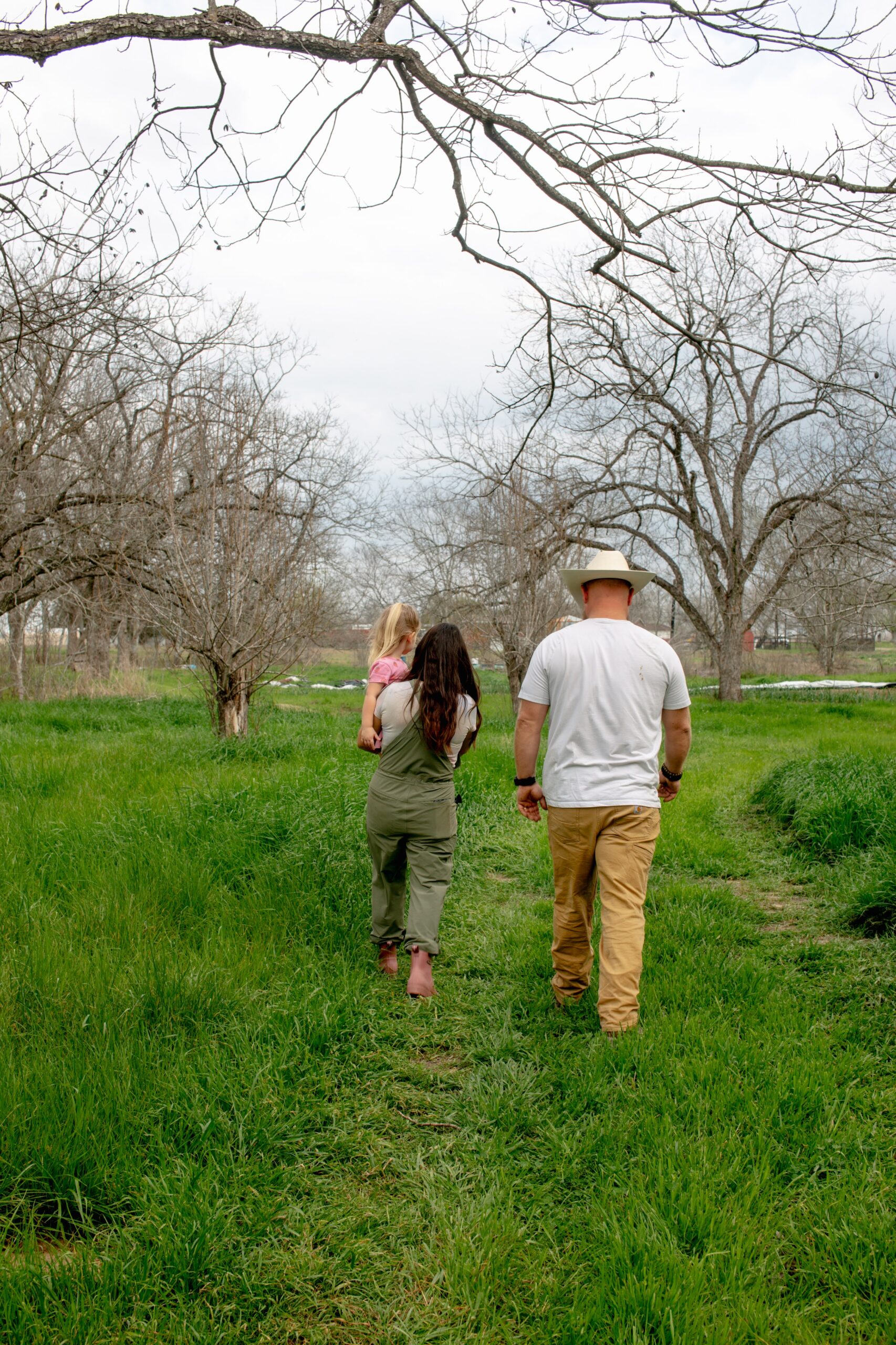Written by Trisha Bates

Cody and Natalie Scott operate Green Bexar Farm on a ten-acre pecan orchard, along the road that runs between La Vernia and St. Hedwig, about 25 miles East of San Antonio. They bought the property in 2016 as a homestead, while Cody was working in the West Texas oil fields. Shortly after they moved into their new residence, the oil market crashed and Cody lost his job.
Grateful for the excuse to move away from his work in oil, Cody began gardening with just a couple raised beds in a sunny spot between the pecan trees. While continuing to work on the side, he expanded his garden to one-eighth of an acre, slowly scaling up the operation.
Then they found the NRCS (Natural Resource Conservation Service) High Tunnel Initiative, which Cody says, “changed everything”. The Scott’s applied for and received their first greenhouse grant, which allowed them to significantly scale up production.
After two years of farming, they were able to make a living and Cody quit his supplemental work to farm full-time. After the success of the first high tunnel, they applied for additional grants and currently have 11,000 square feet in greenhouse growing space.
Their main crops are a variety of herbs and vegetables, with a focus on heirloom tomatoes, and a lot of thought goes into preparing their Blackland Prairie soil for an abundant harvest. Almost everything is done by hand, and you can see the investment when Cody digs a broad fork into the soil with ease. No tillers needed here, just the yearly application of compost and the tomato transplants are ready to go.
With large 80-year-old pecan trees situated every 100 feet throughout their property, they face some limitations on expansion. There’s only about an acre of usable production space for growing vegetables. They’ve had to get creative, and recently added chickens, turkeys, and ducks to the rotation. Using the poultry to turn cover crops into manure, they rotate their flocks onto patches where there will be vegetables the next season. They learned this is called agroforestry, and that there are many additional benefits to the system, including suppression of weeds and pests around the mature pecans.
In 2021, they began building a Farm Store on the property with the goal of selling both their own farm goods and creating an outlet for other farmers’ products. Although they were only open for a short time before a change in city ordinance closed their doors, they saw a huge demand from locals for their farm fresh offerings. They’re hopeful to be back up and running soon.
Cody and Natalie make a great team. While Cody focuses on the vegetable and animal production, Natalie manages their microgreens, CSA program, and the business. They are so grateful for the opportunity to work together right outside their back door and to share this farm life with their kids every day.
Even with many setbacks in the past few years, including the pandemic and winter storms, Cody says “farming is the only path forward for me”. They’ve experimented on neighboring land with new approaches to scaling their operation, and hope to find the right opportunity to take everything they’ve learned and make an even bigger impact on local food production in the future. “We aim to be a soil-focused farm that can produce at a large enough scale to make fresh food accessible to many people. And we want our system to produce the most nutrient-dense food we can,” Cody says.
Another one of Cody’s goals is to educate and support southern growers. When they were just starting, information on small-scale agriculture in Texas was incredibly hard to find. He has invested time in adapting the growing practices found in books and videos for the intense local climate and soil and wants to share those learnings with other new farmers just getting started.
The Scott’s are hopeful for the future of agriculture in Central Texas and are excited to continue to invest in the local food system and feed the community.



